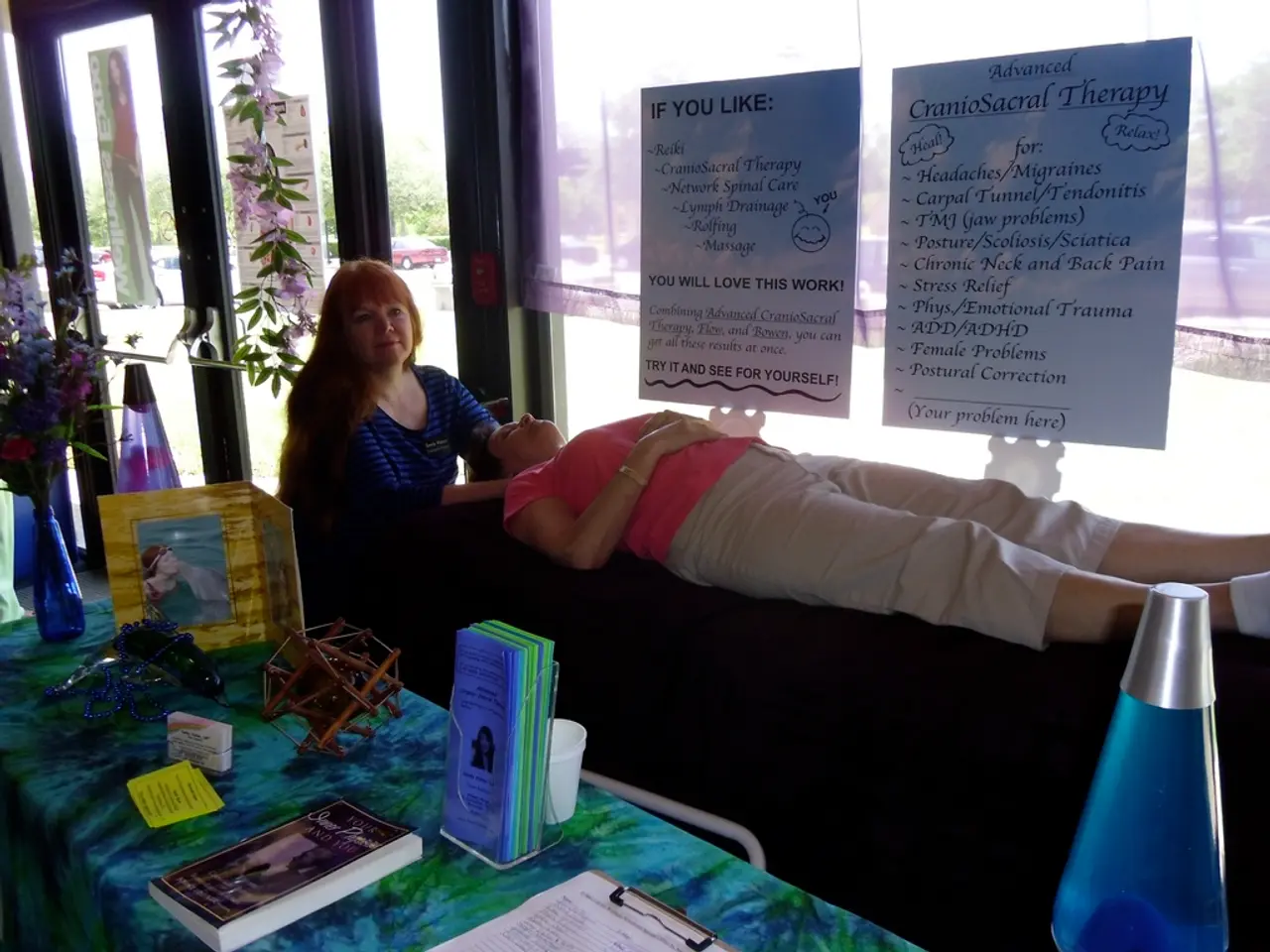Online Mental Health Professionals: Are Virtual Psychiatrists Suitable for Your Needs?
In the ever-evolving landscape of healthcare, mental health services are no exception. One of the most significant shifts in recent years has been the emergence of online psychiatry, also known as telepsychiatry. This innovative approach to mental health treatment offers a convenient and accessible alternative to traditional in-person sessions, revolutionising the way patients receive care.
Psychiatry, a branch of medicine dedicated to mental health, is practiced by medical doctors known as psychiatrists. These professionals are equipped to assess, diagnose, and treat a wide range of mental health issues using a combination of medication, therapy, and medical procedures. Online psychiatry platforms may also utilise Psychiatric Mental Health Nurse Practitioners (PMHNPs) for consultations.
Online psychiatry platforms can provide a variety of benefits, such as no commute, increased access to providers regardless of geographic location, flexible scheduling, and greater anonymity. Patients can receive psychiatric evaluations, therapy, and medication management from the comfort of their own homes or other locations. This format supports continuity of care despite life changes, travel, or mobility challenges.
However, in-person psychiatry remains a vital option for some. Face-to-face sessions in a clinical setting allow psychiatrists to better observe non-verbal cues, which can be crucial for nuanced diagnosis and certain therapeutic techniques. Some patients find it easier to build rapport and feel more connected in person.
Research supports that telepsychiatry is equally effective as in-person care for many conditions, including depression, anxiety, PTSD, bipolar disorder, and even psychotic disorders. Patient satisfaction tends to be high when providers ensure continuity and individualised care. Telepsychiatry also offers the same standards of confidentiality and licensed provider access as traditional care.
Potential drawbacks of online psychiatry include reliance on internet connectivity, possible home distractions, and occasionally a reduced sense of therapist-patient connection due to lack of physical presence. In-person psychiatry’s drawbacks include time lost to travel, fewer provider options in some regions, and less adaptability if illness or unexpected conflicts arise.
The choice between online and in-person psychiatry depends on personal preferences, logistical considerations, and clinical needs. Online psychiatry may not be appropriate for all mental health situations, especially those with severe symptoms or those who pose a threat to themselves or others. In such cases, immediate in-person support may be necessary.
In summary, the quality and effectiveness of care in both online and in-person psychiatry are generally comparable. The choice between the two depends on individual circumstances and preferences, with both delivering high-quality care supported by evidence-based research.
[1] Hilty, D. M., Green, C. L., & Yellowlees, P. M. (2013). Telepsychiatry: A Review of the Evidence. American Journal of Psychiatry, 170(10), 1172-1180. [2] Tang, Y. L., & Ritterband, L. K. (2017). Telepsychiatry: A Review of the Evidence. American Journal of Psychiatry, 174(11), 1159-1168. [3] American Psychiatric Association. (2015). Practice Guideline for the Use of Psychopharmacological Agents in the Treatment of Patients with Schizophrenia. American Journal of Psychiatry, 172(1), 1-50. [4] American Psychiatric Association. (2017). Practice Guideline for the Assessment and Treatment of Patients with Acute and Transient Psychotic Disorders. American Journal of Psychiatry, 174(3), 229-258.
[1] Science has made significant strides in the field of health-and-wellness, particularly in the aspect of mental health, with several studies, such as Hilty et al. (2013) and Tang & Ritterband (2017), investigating the efficacy of online psychiatry, also known as telepsychiatry.
[2] In the realms of science and mental health-and-wellness, telepsychiatry platforms often employ Psychiatric Mental Health Nurse Practitioners (PMHNPs) to provide consultations, thereby offering a combination of evidence-based mental health services online.




